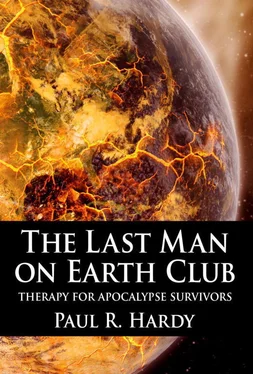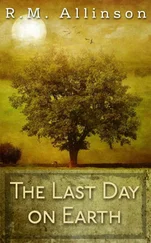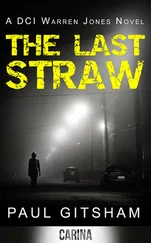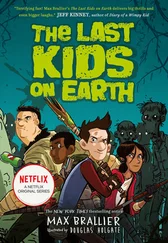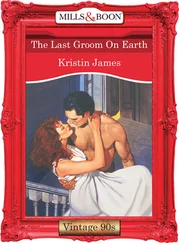“I’m fine. Let me tell you. Please!”
“Okay. Let me make you some tea.” I rose to prepare him a cup.
“It— it—” The words would not come, and he struck the arm of his chair, frustrated.
“You don’t need to jump in this fast, Pew.”
“It was…” he swallowed. “The same that happened to Qaliul.”
“The girl who came to the centre when you were young?”
“Yes! She was older than me. They put her in the programme first. They…”
“You said she died.”
“She killed herself.”
“Because of what they did to her?”
He replied with utter horror in his voice. “Yes!”
I gave him his tea. “How did you know? You were only a little boy.”
“She sent me a letter. She gave it to the other Pu, they kept it for years but I found it when they were old… she told me they were… raping her and she was going to kill herself and they were going to do the same to me when I was her age and she wanted us to run away but she couldn’t find a way and she thought they might, she thought they might… because I was a boy she thought they might… they might make me…”
I took the tea from his shaking hands.
“Pew. You’ve said it. It’s okay.”
“I haven’t said it! I haven’t said anything…”
“They forced you into the breeding programme—”
“Yes! But it was different for boys. They made us… they, they… it wasn’t the same for boys…”
He couldn’t say it.
“Pew… is this something you’d prefer to talk about with a male therapist?”
“No! No, I can… it’s not you, it’s just…”
He was lost for a moment, looking around, almost as though he were trapped. He looked up at me. “Let me show you.”
“Um…” I must have looked a little confused.
“There’s a documentary I found. I can explain it with, with that.”
“Okay, go ahead.” I handed over a pad so he could control the wallscreen. He called up his home folder and found a documentary on agricultural practices on a primitive world — not his one, nor any I recognised. They had apparently domesticated gazelles early in their history and turned them into typical cattle-like givers of meat and milk. He drilled down further into the documentary package and found a piece of video showing details of breeding practices.
A narrator spoke over pictures from a stainless steel model farm scattered with hay and muck. “When the breeding season comes, it is the largest and strongest males that will be selected for stud so their size will be genetically transferred to the next generation.”
A farmhand in overalls led a docile bull gazelle from a pen. Pew stood, nervously watching as I took in the documentary.
“The bull is led to the selected cow and allowed to mount her.” The bull gazelle did exactly that, with details that seemed a little too graphic until I checked the metatext and discovered this was a training video for agricultural students.
“However, approximately eight per cent of bulls show no interest in mounting. It is unknown why, though there are studies ongoing. For the purposes of this video, we shall only discuss the two most commonly used solutions.
“Artificial insemination is used in a number of cases.” The screen showed a bull gazelle suffering the attentions of a vet to collect semen. “This is the preferred method in the modern day as it offers the least risk to livestock. Traditionally, however, bulls have been given sindvort in their feed which acts as an inducement to mounting.”
The screen showed a bull gazelle munching on a paste mixed in with his feed, then cut to a bull entering a pen with a cow and immediately charging at her, making her run to one side. But these gazelles had been made so large by breeding that she could not escape and he mounted her — only more insistently, forcing her against the side of the pen.
“While this method is undoubtedly effective, there are risks involved to the health of both the bull and the cow. Gorings are frequent…” The screen showed a bloody wound in the side of the cow gazelle. “…and can be fatal.”
The screen cut to lower resolution video shot at a real farm rather than the unnaturally clean facility in the main video. A bull had gored a cow so severely that his horns were embedded in her flanks. He could not be calmed by the farmhands, while the cow shrieked in pain and stumbled. “The practice is now banned in many countries, while artificial insemination—”
I pressed pause and looked at Pew. He’d sat down in a chair and hunched up into himself.
“Oh, Pew…” I said. He did not respond. I went to him and kneeled by his chair. “Was that what they did to you?”
He shuddered a nod.
“And Qaliul tried to warn you. And then with Ley’ang…”
“And others!” He screwed his eyes up and nodded again.
“And Shan’oui allowed this?”
“She… she wanted them to take sperm, do it artificially, but when… when they came and made me… she said they couldn’t make it work, they didn’t have a choice, she said it was for the good of all the Pu, I had to do it for the good of the Pu…”
I had to restrain an urge to put a hand on his shoulder; it was obvious now what experiences had caused his PTSD, and why physical contact, especially from a woman, could trigger a flashback.
“Thank you.” I said.
He looked at me, eyes bathed in tears, shuddering.
“Can I die now?” he begged. “Please?”
“No,” I said. “I can’t let you do that. You’ve made a very brave first step but we still have a lot to do.”
“Just let me die…” He curled up into himself again, a ball of pain and sobs.
“It’ll get better, Pew. We can help you now.”
I believed it as I said it. I knew he didn’t.
Iokan was convalescing, but liked to keep active, even if he was limited by smoke-damaged lungs and the need to carry oxygen with him at all times. He walked where he could, and resorted to his chair when he grew too tired. He seemed deliberately to avoid me at first, and spent time outside just looking at the mountains. But eventually he sought me out, requesting I speak with him just before dinner one day.
He preferred to meet outdoors, so I took a collapsible chair and sat down beside him in the meadow while he floated in his own chair. For a man who often wore a kindly look, ready to smile at the merest human foible, he seemed extremely grave.
“So, what would you like to talk about, Iokan?”
He held up a pad: he was finally complying with the doctors who’d forbidden him from talking until his lungs healed. I will tell you everything.
“Oh…” I said, surprised. “I thought it was too dangerous?”
He typed onto the pad and showed it again. It is too late. The danger is here. Will you pass this on to IU Directorate and Shadow Director of ICT?
“Of course. Let me just make a note…” I raised the priority of the meeting with my own pad. “I’ll pass it on as soon as we’re done.”
He’d already written his statement, and sent it to my pad.
My name is Iokan Zalacte. I am a colonel in the Zumazscartan covert operations unit known as Department Zero. Recently I have been involved in strategy and planning but for many years I was an investigator in, and then commander of, a Department Zero regional intervention team.
Department Zero was officially purposed with the task of assessing, retrieving and if necessary destroying artefacts pertaining to the Antecessors and their technology. But fifty years ago we were repurposed to deal with interversal threats to our nation and the world.
It has been fifty two years since our world discovered the existence of other universes, and that many of these universes are hostile towards us. For this reason, the major powers of my world signed a secret treaty to cease rivalries and concentrate on the interversal threat, which was recognised as existential in scope.
Читать дальше
